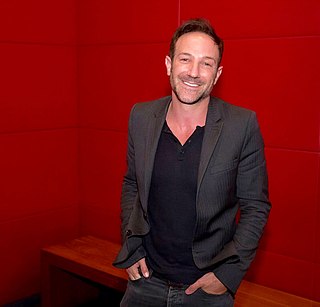A Quote by Joan Rivers
My routines come out of total unhappiness. My audiences are my group therapy.
Quote Topics
Related Quotes
To the best of my knowledge, every acute inpatient ward offers some inpatient group therapy experience. Indeed, the evidence supporting the efficacy of group therapy, and the prevailing sentiment of the mental health profession, are sufficiently strong that it would be difficult to defend the adequacy of the inpatient unit that attempted to operate without a small group program.
We just get comfortable in our routines, and that's how it worked before, but now you can see wrestling from around the world and all the promotions, and everyone has something online you could see. And many years ago, you could do these routines, and they weren't routines to the fans because they didn't see them as much.
Unlike in school, in life you don't have to come up with all the right answers. You can ask the people around you for help - or even ask them to do the things you don't do well. In other words, there is almost no reason not to succeed if you take the attitude of 1) total flexibility - good answers can come from anyone or anywhere (and in fact, as I have mentioned, there are far more good answers 'out there' than there are in you) and 2) total accountability: regardless of where the good answers come from, it's your job to find them.


































